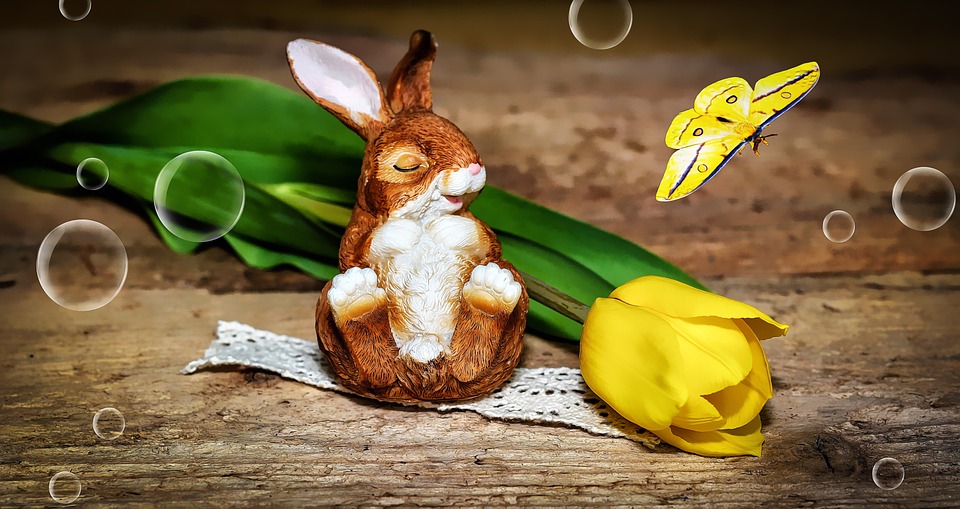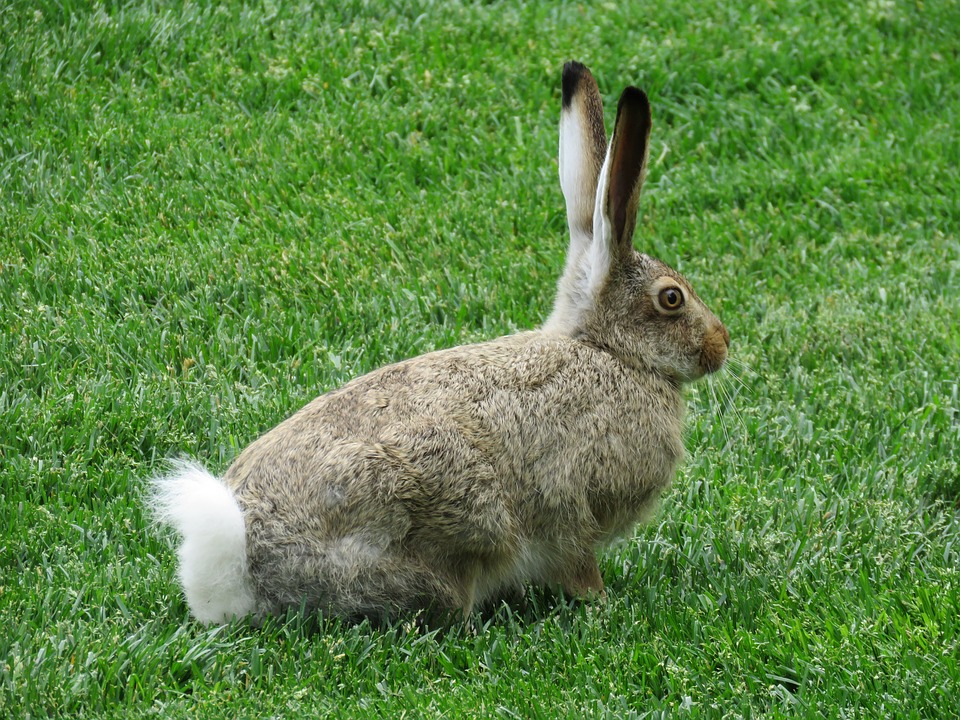This article aims to provide a comprehensive guide on the suitability of string beans as a treat for rabbits. It explores the nutritional benefits, potential risks, proper preparation techniques, and safe serving sizes, ensuring you can confidently offer this vegetable to your furry companion while maintaining their health and well-being.
Part 1: Nutritional Benefits of String Beans for Rabbits

1.1 Vitamins and Minerals
String beans are a treasure trove of essential vitamins and minerals that contribute to a rabbit's overall health. They are particularly rich in:
- Vitamin A: Crucial for maintaining healthy vision, promoting skin integrity, and supporting a robust immune system. A deficiency in vitamin A can lead to eye problems and weakened immunity in rabbits.
- Vitamin C: A powerful antioxidant that combats free radical damage, strengthens the immune system, and aids in tissue repair. While rabbits can produce some vitamin C internally, additional sources like string beans are beneficial.
- Vitamin K: Plays a vital role in blood clotting and bone health. A deficiency in vitamin K can lead to excessive bleeding and bone weakness.
- Potassium: Essential for regulating fluid balance, maintaining muscle function, and supporting nerve impulse transmission. Potassium deficiency can lead to muscle weakness and fatigue.
- Fibre: Promotes healthy digestion, stimulates gut motility, and prevents digestive problems like constipation and diarrhoea. String beans' high fibre content makes them particularly beneficial for rabbits, whose digestive system relies on fibre for efficient functioning.
Part 2: Assessing the Risks Associated with String Bean Consumption

2.1 Understanding the Potential Toxicity and Allergic Reactions
While string beans are generally safe for rabbits, it's crucial to be aware of potential risks:
- Bean Sprouts: Avoid offering bean sprouts to your rabbit as they can contain high levels of lectins, which can cause digestive upset and diarrhoea. Lectins are proteins that can interfere with the digestive process.
- Allergic Reactions: Some rabbits may exhibit allergic reactions to string beans, resulting in symptoms like diarrhoea, vomiting, and skin irritation. It's essential to introduce string beans gradually and closely monitor your rabbit for any signs of adverse reactions. If any adverse symptoms arise, discontinue feeding string beans and consult a veterinarian immediately.
2.2 The Risk of Bloating
String beans are high in fibre, which is beneficial for digestion. However, excessive consumption can lead to bloating and gas, especially in rabbits with sensitive stomachs. This is because their digestive system is not designed to break down large amounts of fibre quickly.
Part 3: Proper Preparation and Serving Techniques
3.1 Ensuring Safety through Washing and Preparation
Proper preparation is key to ensuring string beans are safe for your rabbit:
- Thorough Washing: Wash string beans under running water to remove any dirt, pesticides, or residues. Ensure all traces of residue are removed before feeding them to your rabbit.
- Cooking or Steaming: Raw string beans can be difficult for rabbits to digest. Steaming or boiling is recommended to soften them and make them easier to consume. Cooking also helps break down complex carbohydrates and reduce the risk of digestive upset.
- Avoid Additives: Never add salt, sugar, or any other seasonings to the string beans. These additives are harmful to rabbits and can cause health issues.
- Remove Seeds: While string bean seeds are technically not toxic, they are difficult to digest and can cause digestive problems. It's best to remove them before feeding the beans to your rabbit.
3.2 Determining the Right Serving Size and Frequency
To avoid digestive issues, moderation is key when feeding string beans:
- Small Portions: Start with a small amount, about a teaspoonful, and gradually increase the portion size as needed. Monitor your rabbit's reaction and adjust the serving size accordingly.
- Occasional Treat: String beans should be offered as an occasional treat, not a staple food item. One or two small servings per week is generally safe for healthy adult rabbits. Ensure the string beans are served in addition to their regular hay and pellet diet.
- Individualized Needs: The appropriate serving size and frequency can vary depending on your rabbit's individual size, age, and activity level. Consider consulting a veterinarian for personalized recommendations.
Part 4: Exploring Alternatives to String Beans
4.1 A Variety of Vegetables Suitable for Rabbits
A diverse range of vegetables can enrich your rabbit's diet:
- Leafy Greens: Dandelion greens, spinach, and kale are excellent sources of vitamins, minerals, and fibre. Offer these greens in moderation, as some can be high in oxalates, which can bind calcium and affect its absorption.
- Bell Peppers: Red, yellow, and orange bell peppers provide vitamins A and C. They can be offered in small pieces, ensuring the rabbit can chew them safely.
- Carrots: A popular treat, carrots offer vitamins A and K, and fibre. Limit carrot intake to avoid digestive issues.
- Broccoli: Broccoli florets are a good source of calcium and vitamin C. Offer them in moderation and ensure they are chopped into small pieces for safe consumption.
- Parsley: Fresh parsley is a good source of vitamin C and can be offered in small amounts. However, avoid giving parsley with a strong scent as it can cause digestive issues.
4.2 The Importance of a Balanced Diet: Fresh Hay and Pellets
While treats are enjoyable, the foundation of a rabbit's diet should be fresh hay and high-quality pellets:
- Hay: Provides essential fibre, supports healthy teeth wear, and promotes a healthy digestive system. Offer unlimited hay daily, ensuring it is always available to your rabbit.
- Pellets: A balanced source of nutrients, pellets should be given in limited quantities based on your rabbit's size and activity level. Choose high-quality pellets formulated specifically for rabbits.
Part 5: Ensuring Proper Hydration: The Importance of Fresh Water
Always provide fresh water in a clean bowl for your rabbit. Water is essential for hydration, nutrient transport, and overall health. Change the water frequently to ensure it remains fresh and clean.
Part 6: Monitoring Your Rabbit's Health for Potential Issues
It's crucial to monitor your rabbit for any signs of illness or digestive upset after introducing string beans:
- Diarrhoea: Loose stools or excessive bowel movements. Diarrhoea can indicate a digestive issue or an allergic reaction to string beans.
- Vomiting: Any expulsion of stomach contents. Vomiting can be a sign of serious health problems and should be addressed immediately.
- Lethargy: A decrease in activity levels. Lethargy can indicate illness or digestive distress.
- Loss of Appetite: A decline in food intake. Loss of appetite can be a sign of illness or pain.
- Bloating: An enlarged abdomen or discomfort in the abdomen. Bloating can be a symptom of digestive upset or gas build-up.
If you notice any of these symptoms, consult a veterinarian immediately for diagnosis and treatment.
Part 7: Addressing Common Questions
7.1 Can rabbits eat string bean pods?
No, string bean pods are not recommended for rabbits. They contain higher levels of lectins and can cause digestive upset and diarrhoea. It's best to stick to the beans themselves, avoiding the pods altogether.
7.2 Can baby rabbits eat string beans?
It's best to avoid feeding string beans to baby rabbits until they are at least six weeks old. Their digestive systems are still developing and may not be able to handle them well. Focus on providing them with high-quality hay and pellets until their digestive system is mature.
7.3 Can rabbits eat string bean leaves?
No, string bean leaves can be toxic to rabbits. They contain a substance called "phaseolin" which can cause digestive upset and even liver damage. It's crucial to avoid feeding string bean leaves to rabbits.
7.4 How often can I give my rabbit string beans?
String beans should be offered as an occasional treat, not a staple food item. One or two small servings per week is generally safe for healthy adult rabbits. Monitor your rabbit's reaction and adjust the frequency accordingly.
7.5 Can I give my rabbit raw string beans?
While raw string beans are technically safe for rabbits, they are difficult to digest. It's best to cook or steam them to soften them and make them easier to consume. Cooking helps break down complex carbohydrates and makes the beans more digestible.
7.6 My rabbit has a sensitive stomach. Can I still give him string beans?
If your rabbit has a sensitive stomach, it's best to avoid string beans or offer them in very small quantities. Monitor your rabbit closely for any signs of digestive upset. Consult a veterinarian for personalized recommendations based on your rabbit's individual needs.
7.7 Can rabbits eat string beans with the seeds?
It's best to remove the seeds from string beans before feeding them to rabbits. Seeds are harder to digest and can cause digestive issues. Removing the seeds reduces the risk of digestive problems and ensures the string beans are easier for your rabbit to consume.
7.8 Can rabbits eat string bean plants?
No, string bean plants, including the stems, leaves, and flowers, are toxic to rabbits. They contain "phaseolin", which can cause digestive upset and liver damage. Only the beans themselves, without the stems, leaves, or flowers, are safe for consumption in moderation.
Everyone is watching
-

Do Rabbits Lay Eggs? (The Surprising Truth)
OTHER TYPES OF PETSThis article will unravel the common misconception that rabbits lay eggs, exploring the fascinating world of r...
-

What's a Group of Rabbits Called? (A Comprehensive Guide)
OTHER TYPES OF PETSThis article delves into the fascinating world of rabbits, exploring the various terms used to describe a grou...
-

Can Rabbits Eat Grapes? A Guide to Safe Rabbit Treats
OTHER TYPES OF PETSThis comprehensive guide will explore the safety and suitability of grapes for rabbits, providing detailed inf...
-

Predators That Hunt Rabbits: A Guide to Natural Enemies
OTHER TYPES OF PETSI've always been fascinated by the circle of life, that delicate dance between predator and prey. Growing up ...
-

Are Rabbits Nocturnal Animals?
OTHER TYPES OF PETSThe question of whether rabbits are nocturnal animals is a fascinating one, with a surprisingly complex answer...
